#Simon and Schuster Audio
Text
One of Our Own by Lucinda Berry (Audiobook)
Simon & Schuster
Audible Release: March 12, 2024
Listening Length: 3 hours 54 minutes
Narrators: A.J. Cook, Tessa Albertson
Genre: Domestic Thriller
KKECReads Overall Rating: 5/5
KKECReads Rating for Performance: 5/5
KKECReads Rating for Story: 5/5
I purchased a copy of this audiobook on Audible, and I leave my review voluntarily.
This was a beautiful experience. This is the first…

View On WordPress
#AJ cook#amazon#approved#audio experience#blog#blogger#blogging#book#book blog#book blogger#Book review#Books#katy#Katy approved#katyapproved#kkec#kkecreads#Lucinda Berry#New Release#one of our own#Read#read and review#reading#reads#Review#reviewed#reviewer#Simon & Schuster
0 notes
Text
So I have ADHD to the point it's gotten hard to read physical novels. My friend and I have been listening to the audiobook versions of Chronicles of the Imaginarium Geographica, and there isn't one for Dragons of Winter. As a result, we're going to record a chapter each, alternating as we go, and send the audio to each other. I bought the hardcover online and:
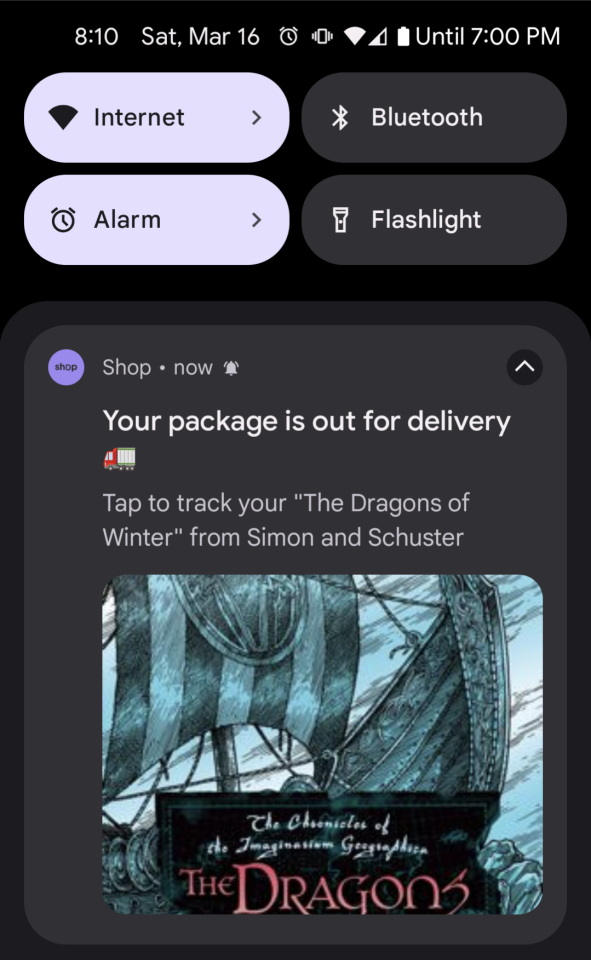
IT'S ARRIVING ON CARETAKER DAY Y'ALL
I'm excited. 10/10 good job Simon and Schuster
#cotig#caretaker day#Chronicles of the Imaginarium Geographica#I miss you Fred and Charles#can't wait to see y'all again
89 notes
·
View notes
Text

I Was a Teenage Slasher by New York Times bestselling author Stephen Graham Jones (My Heart Is a Chainsaw, The Only Good Indians) will be published on July 16, 2024 via Simon & Schuster.
A slasher story told from the killer's perspective, the 384-page horror novel will be available in hardcover, e-book, and audio book. Jon Bush designed the jacket cover. Read on for the synopsis.
1989, Lamesa, Texas. A small west Texas town driven by oil and cotton—and a place where everyone knows everyone else’s business. So it goes for Tolly Driver, a good kid with more potential than application, seventeen, and about to be cursed to kill for revenge. Here Stephen Graham Jones explores the Texas he grew up in, the unfairness of being on the outside, through the slasher horror he lives but from the perspective of the killer, Tolly, writing his own autobiography. Find yourself rooting for a killer in this summer teen movie of a novel gone full blood-curdling tragic.
Pre-order I Was a Teenage by Stephen Graham Jones.
#stephen graham jones#i was a teenage slasher#slasher#horror#horror novel#horror books#simon and schuster#book#gift#80s horror#1980s horror#80s slashers#my heart is a chainsaw#the only good indians#jon bush
125 notes
·
View notes
Note
Hey! FYI that Simon & Schuster Audio posted a short video of AJ doing the voice recording for the audio book on X.
Yesss I saw it this morning and ahh! I’ve been waiting for a bts clip of her reading it
(Credit to Simon & Schuster and Lucinda Berry for the clip)
26 notes
·
View notes
Text
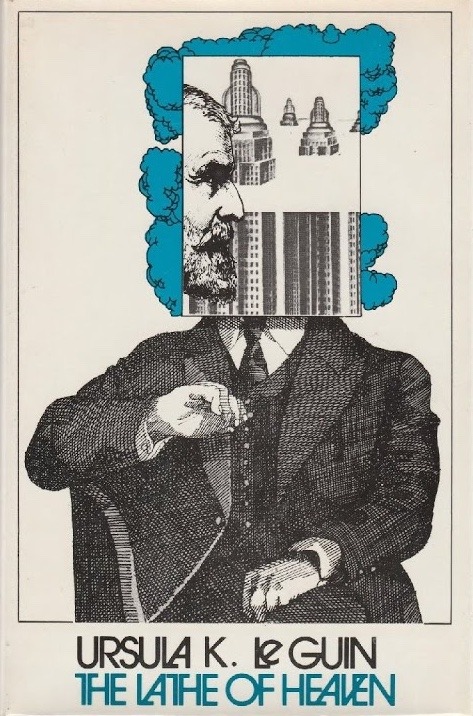
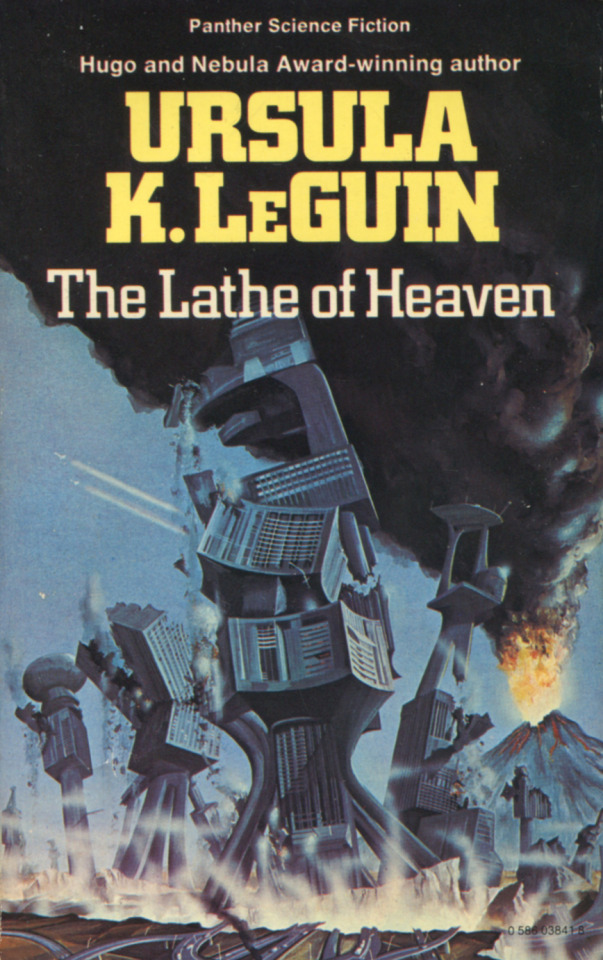
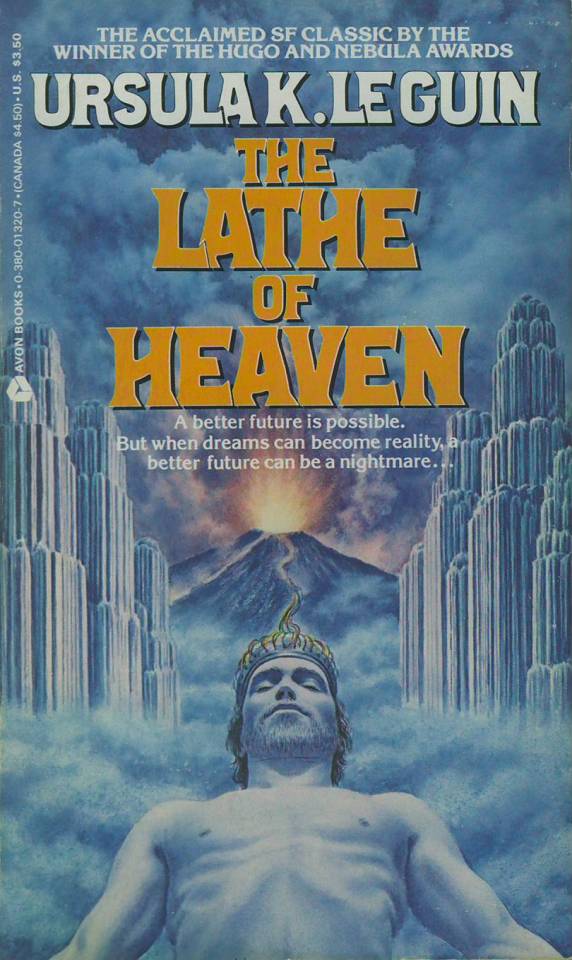
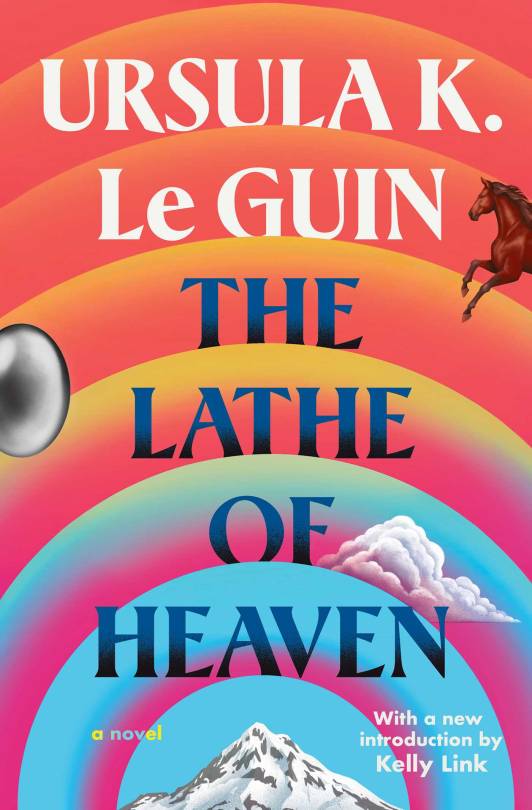

Covers to Ursula K Le Guin's The Lathe of Heaven (various artists/designers, 1971 to 2023).
(via YouTube/Hellblazer1138 Audio, Battered Tattered Yellowed & Creased, Neutral Good Books, Weighing a Pig Doesn't Fatten It, & Simon & Schuster)
38 notes
·
View notes
Text
New audio snippet from Simon and Schuster’s website. Felicia (AJ Cook) gets off a call with a young girl, and explains her thought process right after the distressful call.
(Sample runtime above: 1:35. All credit to Simon & Schuster and Lucinda Berry)
16 notes
·
View notes
Text
Russian archival records obtained for this book show that [Joseph] Stalin colluded with his favorited U.S. candidate in 1948, Henry Wallace, [Franklin D.] Roosevelt’s Soviet-friendly wartime Vice President.
The nature of Wallace’s relationship with the Kremlin has long been a subject of speculation. Soviet intelligence is known to have unimaginatively code-named the Vice President CAPTAIN’S DEPUTY during the war. But no evidence has ever emerged that Wallace was recruited as a Soviet agent. He was, however, we can now discern, a Soviet tool. He sincerely believed that “peaceful coexistence” between the Soviet Union and the United States not only could be achieved, but was essential for world peace. All the while, he looked away from (and naively followed Soviet propaganda denying) the existence of Stalin’s mass forced labor and terror programs. According to [President Harry S.] Truman’s counsel Clark Clifford: “It was never clear to me how aware he [Wallace] was of the uses to which the Communist Party was putting him, but whether he knew it or not, he was following the communist line, serving communist ends, and betraying those Americans who supported him as a serious alternative to the two main candidates [in 1948].” Wallace’s naivete about Soviet communism turned him into an asset for Stalin, if not a recruited Soviet agent.
Wallace decided to run in the 1948 U.S. election as the Progressive Party nominee. In April and May that year, he secretly liaised with Stalin about public policies that would be advantageous for the Soviet Union, coordinating his public statements with the dictator. Wallace secretly met with the youthful Soviet ambassador to the UN in New York, Andrei Gromyko, who dispatched the candidate’s messages to the Soviet foreign minister, [Vyacheslav] Molotov, and to Stalin himself. In his memoirs, Gromyko admitted to meeting Wallace, but downplayed the meeting’s significance, suggesting that after talking with him he considered that Wallace had lost contact with the pulse of American life. Archival documents in Moscow reveal that in fact Stalin took Wallace’s position and candidacy seriously, approving his public positions, and answering questions that the former Vice President put to him, which Stalin annotated in his distinctive pencil. Their alignment produced a published open letter from Wallace to Stalin, vetted by the Soviet leader in advance, to which Stalin then publicly replied, all as agreed between the two men.
Wallace’s Presidential election bid in November 1948 dismally failed; he ended up getting barely 2 percent of the vote, while Truman, to his and the nation’s surprise, won a second term. He defeated New York Governor Thomas E. Dewey in one of the greatest upsets in U.S. Presidential history. Ironically, the staff of Wallace’s failed 1948 campaign included none other than the Soviet atom spy Ted Hall. Following his unsuccessful White House run, Wallace had a crisis of faith in his pro-Stalinism. This may have been caused by his realization that Stalin had used and discarded him after the election. Stalin had gotten what he wanted from Wallace. In 1952, Wallace published an article, “Where I Was Wrong,” describing “Russian Communism” as “utterly evil.” The Kremlin and its intelligence services nevertheless learned an important strategic lesson for later in the Cold War: that it could use the freedoms inherent within American electoral campaigns to influence candidates favorable to the Soviet Union.
-- From Spies: The Epic Intelligence War Between East and West by Calder Walton, Simon & Schuster, 2023 (BOOK | KINDLE | AUDIO)
#History#Henry A. Wallace#Vice President Wallace#Soviet Union#Cold War#Cold War History#Joseph Stalin#Stalin#Stalinism#Communism#Soviet History#Espionage#1948 Election#Harry S. Truman#President Truman#Thomas E. Dewey#FDR#Franklin D. Roosevelt#President Roosevelt#Roosevelt Administration#Politics#Political History#Russia#Russian History#Soviet Communism#Spies: The Epic Intelligence War Between East and West#Spies#Calder Walton#Simon and Schuster#Simon & Schuster
25 notes
·
View notes
Text
Monopoly's event-horizon

When a superdense, concentrated mass forms a black hole, the laws of physics around it change, giving rise to an eldritch zone where the normal rules don’t apply. When corporations form a concentrated industry, the laws of economics likewise change.
Take copyright: when I was a baby writer, there were dozens of comparably sized New York publishers. The writers who mentored me could shop their rights around to lots of houses, which enabled them to subdivide those rights.
For example, they could separately sell paperback and hardcover rights, getting paid twice for the same book. Under those circumstances, giving authors broader copyrights and easier enforcement systems could directly translate into more groceries on those authors’ tables and more gas in their cars’ tanks.
But today, publishing has dwindled to five giant houses (possibly four soon, depending on whether Penguin Random House successfully appeals its blocked merger with Simon and Schuster). Under these conditions, giving exploited authors more copyright is like giving bullied schoolkids more lunch-money.
Whatever copyright authors get will be non-negotiably extracted from them via the near-identical, unviolable core contracting terms from the Big Five publisher. Today, the bullies don’t just take your paperback rights, they also acquire your audio and ebook rights.
Most of them now want your worldwide English rights, so you can’t resell the book in the Commonwealth, and some have started demanding graphic novel, film and TV rights.
In our new book, Rebecca Giblin and I call this “chokepoint capitalism”. In today’s highly concentrated creative labor markets, copyright’s normal role of giving creators bargaining leverage over their supply chain is transformed.
https://chokepointcapitalism.com
Instead of being a tool for creators, copyright is inevitably transferred to part of the supply chain — a publisher, label, streamer, ebook retailers, etc — where it becomes a tool to beat up on the rest of the supply chain, especially creators.
But copyright isn’t the only policy that breaks down at the event horizon of monopoly’s black hole. Policy itself breaks down, too. When power is pluralized among lots of firms an expert regulator can ask a technical question like “Does net neutrality lead to a decrease in private infrastructure investment?” and get lots of answers.
Some companies — cable operators hoping to override your choices about which data you want by slowing down traffic from sites unless they pay bribes — will insist that they can’t afford to build fiber without this incentive.
Others — ISPs who want to raid the cable operators’ customer base by giving you the data you request as fast as they can — will answer this charge. Both will provide supposedly empirical about their investment choices and capital and running costs, and both will vigorously probe the others’ submissions for factual weaknesses.
But when all the internet in your country has been monopolized so that nearly all Americans have little or no choice of ISP, the truth-seeking exercise of regulation becomes an auction, with the monopolists bidding together to bend reality (or regulation) to their will:
https://muninetworks.org/content/177-million-americans-harmed-net-neutrality
This is called “regulatory capture”: when there are four or five companies running an industry, nearly everyone qualified to understand it is an executive at one of those companies. Obama’s “good” FCC chair was a cable lobbyist, Trump’s “bad” chair was a Verizon lawyer.
Ironically, the term “regulatory capture” originated with right-wing, anti-regulation nihilists. They argued that capture was inevitable and the only way to preserve competition was to eliminate all regulation, including the regulation that blocked monopoly formation.
https://doctorow.medium.com/regulatory-capture-59b2013e2526
Eliminating anti-monopoly rules had the entirely predictable effect of producing lots of monopolies. Today, nearly every global industry — beer, shipping, banking, athletic shoes, concert tickets, eyeglasses, etc — is dominated by a handful of firms:
https://www.openmarketsinstitute.org/learn/monopoly-by-the-numbers
Today, the same people who advocated for removing anti-monopoly rules in every administration since Reagan’s insist that their deregulation has nothing to do with the growth of monopolies — that these monopolies arise out of some mysterious force of history: when it’s monopoly time, you get monopolies.
This is a wild thing to say aloud among reasonably intelligent adults, like claiming, “Well, when we put out rat poison, we didn’t have a rat problem. We stopped, and now we’re overrun by rats. But it would be hasty to assume that removing the rat poison led to the explosion of rats (by the way, does anyone have a cure for the plague?)”
But if you haven’t paid close attention to the history of antitrust law since the late 1970s, all of this might feel mysterious to you — or worse, you might mistake the cause for the effect: regulators keep making corrupt choices, so regulation itself is impossible.
This is like the artists’ rights advocate who says, “artists’ incomes keep falling, so we need more copyright” — in mistaking the effect for the cause, both blame the system, rather than the corporate power that has corrupted it.
The same is true in our online “censorship” “debate,” which poses the issue of speech online as one of “which speech rules should the Big Tech companies that have transformed the internet into five giant websites filled with screenshots of the other four adopt?”
https://doctorow.medium.com/yes-its-censorship-2026c9edc0fd
Good communities need good rules, sure — but by focusing on which rules we have, rather than what keeps people stuck in social media silos that have manifestly bad rules, we miss the point. Absenting yourself from the major social media platforms and online messaging tools extracts major costs on your personal, professional, educational and civil life, so many of us stay within those silos, even though every day we spend there is a torment.
The focus on penalizing firms with bad rules is another one of those mistaking-the-cause-for-the-effect-and-making-it-worse phenomena. A fine-grained, high-stakes duty to moderate makes it effectively impossible for small platforms — say, community-owned co-ops — to offer an alternative to Big Tech.
And once Big Tech platforms have a duty to police their users, they can argue, reasonably enough, that they can’t also be forced to interoperate with other platforms whose users they can’t spy on and thus can’t control.
The case that bad community managers give rise to toxic communities breaks down under conditions of monopoly, since attempts to improve platforms with billions of users are a) doomed (there is no three-ring binder big enough to encompass all the rules for three billion users) and b) inimical to standing up smaller, easier-to-administer communities.
Monopoly’s singularity also applies to free software and open source. In the mid-1980s, Richard Stallman coined the term “free software” to apply to software that respected your freedom, specifically, the freedom to inspect, improve and redistribute it.
These were considered the necessary preconditions for freedom in a digital world. Without a guaranteed right to inspect the code that you relied on and correct the defects you found in it, you were a prisoner to the errors or ill intentions of the software’s original author.
In 1998, another name was proposed for software licensed on “free” terms: “open source.” Nominally, this term was intended to resolve the ambiguity between “free as in beer” and “free as in speech” — that is, to make it clear that “free software” didn’t mean “noncommercial software.”
This was said to be necessary to resolve the fears of commercial firms that had been frightened away from free software due to a misunderstanding. As part of this shift, advocates for “open source” shifted their emphasis from free software’s ethical proposition (“software that gives you freedom”) to an instrumental narrative.
Open source software was claimed to be higher quality than proprietary software, because it hewed to the Enlightenment values of transparency, replicability and peer review (“with enough eyeballs, all bugs are shallow”).
Along with this claim, there was a second argument that open source software was cheaper to develop because a “community” would gather to help maintain it. Sometimes, this was couched as a “commons” where lots of actors, large and small, would work to produce a community good.
In 2018 Benjamin “Mako” Hill delivered a keynote to the Libreplanet conference that was a kind of postmortem to the 20-year experiment in instrumentalism (open source) over ethics (free software):
https://www.youtube.com/watch?v=vBknF2yUZZ8
Mako concluded that the experiment was a failure, producing a situation in which the tech giants enjoyed unlimited software freedom (because they ran the cloud servers we all depended on) while the rest of us merely had open source (the right to inspect the software powering the cloud, and to suggest ways to modify it).
In this account, the shift from ethics to instrumentalism paved the way for a series of compromises that turned the commons into a sharecropper’s precarious farmstead. When the open community was asked whether cloud software should be subjected to the same copyleft terms as software distributed for users, they weighed this as an instrumental proposition (“will this make the software better”), not an ethical one (“will this give users more freedom?”), and concluded that the answer was “this is fine.”
I think there’s a lot to this explanation — if nothing else, it explains how such a drastic shift took place without much hue and cry. But there’s another phenomenon at work that Mako’s account doesn’t grapple with: the rise of tech monopolies.
The reason that ethical propositions related to software freedom were sidelined so effectively in the decades after 1998 is the increasing power of tech monopolies: as tech giants gobbled up their competitors or put them out of business with predatory pricing, they gained power over regulators, universities, and individual technologists (increasingly employed by or dependent on a tech giant).
Copyleft — like copyright — breaks down at the event horizon of concentrated corporate power. With copyright, the breakdown manifests as the appropriation of copyright’s “power to exclude” by the firms it was supposed to be wielded against. With copyleft, it manifests as “software freedom” being hoarded by the same firms that copyleft licenses were supposed to keep in check.
This phenomenon isn’t limited to free software — it also plagues open-licensed “content” — material released under Creative Commons licenses, say. A year ago, Paul Keller and Alek Tarkowski published an important essay on “openness” entitled “The Paradox of Open”:
https://paradox.openfuture.eu/
In this essay, the authors — both significant contributors to the world of free software and open content — identify a phenomenon akin to the Mako’s observation of “freedom for big companies, openness for the rest of us.” From Openstreetmap to CC-licensed creative works, corporate monopolies have supercharged their power by plundering the commons.
This month, Open Future, who published “Paradox,” published a series of responses to the original paper:
https://paradox.openfuture.eu/responses/
They are uniformly excellent, but the one that I am most interested in comes from James Boyle, “Misunderestimating Openness”:
https://openfuture.eu/paradox-of-open-responses/misunderestimating-openness/
Here, Boyle sharply disagrees with Keller and Tarkowski’s argument, grouping it with similar claims about content moderation and censorship, arguing that openness was only ever a necessary — but insufficient — precondition for a better world. In the same way, online speech forums might be terrible places, but this is a failure of their moderators and their communities and their business-models, not an indictment of the idea of online discourse itself.
Both papers grapple with concentrated corporate power as a corrupting force, but neither puts it in the center of the breakdown of otherwise sound practices.
Reading all these people whom I respect and admire so much debating whether “openness” is good or bad makes me even more certain that fighting concentrated corporate power is the precondition for success in all other goals.
Fighting concentrated corporate power may seem like a tall order, and it is, but in that fight, we have comfort in a key idea from Boyle’s own work.
Boyle describes the history of the term “ecology.” Before this term was in widespread use, it wasn’t clear when two people were engaged in the same struggle. If you care about endangered owls and I care about the ozone layer, are we on the same team?
What do charismatic nocturnal avians have to do with the gaseous composition of the upper atmosphere?
The term “ecology” turns these issues (and a thousand more) into a movement.
Today, there are people of all walks of life living in all kinds of hurt who think their pain is caused by phenomena that are downstream of corporate power. Once we figure that out — once we figure out that to make our tools work again, we need to escape the event horizon of the capitalist singularity — then we can really begin the fight in earnest.
Image:
NASA’s Goddard Space Flight Center (modified)
CC BY 2.0 (asserted; more likely public domain)
https://creativecommons.org/licenses/by/2.0/
[Image ID: A NASA rendering entitled 'Neutron Stars Rip Each Other Apart to Form Black Hole,' pictured as a Fibonacci spiral of glowing red lines on black background. Superimposed over this is an image of Monopoly's 'Rich Uncle Pennybags,' clutching a Grim Reaper's scythe rather than a cane, his face a skull. The lower half of his body has been stretched and is disappearing into the black hole at the center of the NASA image. He is limned with red and orange and sports a red/orange comet-tail.]
123 notes
·
View notes
Text
David Tennant Audios I'm Trying To Find: Supermarket Zoo
I've been posting a lot about the rare and obscure David Tennant works I've been able to find, or ones he did early in his career, or....you know, pretty much anything weird and wonderful this incredible Scottish thespian ever did, no matter how niche! I spend a lot of time hunting that stuff down and oftentimes - as this story about my journey trying to find his short film, Bite, explains - I manage to score and find what I'm looking for in a big way.
But not always. So tonight, dear readers, I'll switch gears and have a rant about talk about something I'm actually trying to FIND.
I'll preface all this by saying I believe I'm only missing a few of David's audio works (well, at least the audio works which I know he did.) Sadly, there's no IMDb-like comprehensive source for the entirety of his audio work like there is with his film and television career: the closest thing to this is the BBC Genome Project, which - while remarkable! - is primarily a source which catalogues audio broadcast over the BBC, not a repository for the names of the actors involved in each audio. The Genome Project has some gems - for example, you can listen to David's remarkably in-depth 45-min 2009 interview for Desert Island Discs, where he talks about his family life as a child, dealing with his fame, and what music he'd take on a desert island - but it doesn't do as well for old audio broadcasts, mostly because prior to 2000 or so, the BBC didn't really keep copies of audio broadcasts! The Project does have copies of the Radio Times, though, so often it is these which provide some clue as to David's audio projects. But they're not comprehensive, either.
All this to say, I think I have the majority of David's audio work. I've found a few more over the years which weren't attributed to him in any other place but his biography blurb in the programmes of his theatre work - and I've found those, too (a few very recently!) But David's done a lot! He's as prodigious with his audio as he is the rest of his career, and I would not be surprised in the least to learn that the list I have isn't as complete as I think it is. He's more than likely done more audios than I currently know about, because....he's David, that's why. The Energizer Worker Bunny!
Regardless....I do have a lot of his audios. Put it this way - I have over 120 audios he's done since 1993, and if my list is accurate, I only lack five (!!) audios to make the list complete.
Three out of the five I need are early 2000s (when the BBC didn't always archive their recordings), one is from 1989 when he was in drama school, and the last, weirdly, comes from 2010 and isn't even from radio!
This last one is his narration of a children's book called Supermarket Zoo by Caryl Hart, and illustrated by Ed Eaves.

Here are a few of Eaves' illustrations for the book:

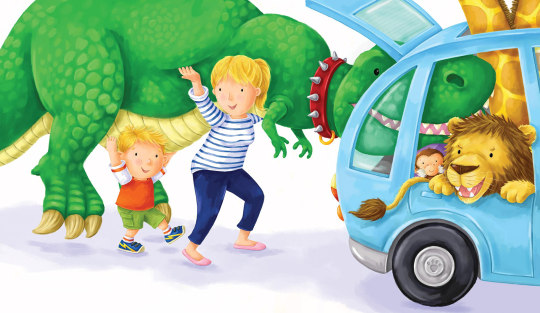
from https://edeavesillustrator.com/supermarket-zoo-2
I would LOVE to find this audiobook...somewhere. Damn it!
Supermarket Zoo was published by Simon and Schuster and copyrighted 2010. The ebook was published in 2011, and I believe David recorded the narration for the audiobook sometime before May 2011. The audiobook music was written and composed by Iain Carnegie, and he lists it here on his website.
You can find copies of the book all over the internet. But try finding a copy of the audiobook! Arghhhh!
8 notes
·
View notes
Text

Daughter of Mine
by Megan Miranda
published by S&S/Marysue Rucci Books
Available in hardcover, ebook, and unabridged audio download
From the Simon & Schuster website:
When Hazel Sharp, daughter of Mirror Lake’s longtime local detective, unexpectedly inherits her childhood home, she’s warily drawn back to the town—and people—she left behind almost a decade earlier. But Hazel’s not the only relic of the past to return: a drought has descended on the region, and as the water level in the lake drops, long-hidden secrets begin to emerge…including evidence that may help finally explain the mystery of her mother’s disappearance.
* * * * * * * *
2 notes
·
View notes
Text
Is the Book launch Dead? If so… Now What?
So back in 2021, full lockdown, I released a nonfiction with Simon&Schuster (it’s here if you like history of science).
It was covid. But it’s more than covid; unless you are a REALLY big name, you aren’t getting a book tour. Instead, you might do some virtual events. I did. And I realized how incredibly boring most author events can be for the audience. A talking head. No interaction. That’s what used to happen at the book signing desk. For most authors and readers, those days are gone. But I *wanted* to interact… I missed book clubs and chatting around signing tables.
So I developed a twice monthly YouTube show that’s a bit like the muppet show meets Addams family meets book club. Claymation, custom book cocktails, skits, live music, and an actual book club chat with both the authors (!) and members (who actually read the books). I called it the PECULIAR BOOK CLUB.
It’s been slow growing, but we have 10k FB followers, 2500 free group members, and a committed set of about 75 people who religiously follow and support the show through paid membership. Oh. And we also have a podcast that turns all video content into audio AS WELL AS offering book launch shows and our ‘peculiar at the movies’ series.

Here are our links of note. Subscribing to the newsletter is how you receive show links.
Website:
Instagram:
Newsletter:
YouTube:
Podcast:
Member levels:
FB page:
FB Group:

#booksbooksbooks#books and reading#book club#books#reading#authors#author event#livestream#music#cocktails#comedy sketch#youtube#writers on tumblr
4 notes
·
View notes
Text
Spotify pushes into audiobooks in challenge to Amazon’s Audible
Streamer looks to capture more of the market by bundling hours of free listening into monthly subscriptions
by Anna Nicolaou

Spotify would not say how much it planned to spend on its push into audiobooks. The company will pay royalty fees to the biggest publishing houses — Penguin Random House, Hachette, Simon & Schuster, HarperCollins and Macmillan — based on listening on its platform.
Spotify’s payment rates will be similar to Amazon’s, requiring a certain threshold of listening time to qualify for payment, one person familiar with the matter said. Spotify is in negotiations with independent publishers to add more books to the programme, the person said.
READ MORE
Authors: Make sure to check your contracts for clarification on how your royalties will be accounted for on steaming channels. Many book contracts only refer to royality rates based on "pruchases" or downloads. There is a good chance your current contract does not have any language on prorated revenue share of listening time.
Audio books are going to flood into Spotify. Understand how you will be compensated before the bell curve.
5 notes
·
View notes
Text

Book Fairy Tale
By: Stephen King
Narrated by: Seth Numrich, Stephen King
Length: 24 hrs and 6 mins
Unabridged Audiobook
Release date: 09-06-22
Language: English
Publisher: Simon & Schuster Audio
4.8 out of 5 stars 4.8 (7,339 ratings)
2 notes
·
View notes
Note
Was Henry A. Wallace a spy or just a Soviet tool?
I think Wallace was just deeply idealistic and probably a true Socialist at a time when Americans could not differentiate between Socialism and "evil" Soviet Communism (well...Americans still can't do that), and that his idealism allowed the Soviets to use him to their advantage. But I definitely don't believe he was a spy or even a conscious Soviet asset.
Calder Walton wrote a book last year called Spies: The Epic Intelligence War Between East and West (BOOK | KINDLE | AUDIO) that was published my Simon & Schuster and I actually posted this excerpt a few months ago about Wallace and the Soviets during the Cold War that might answer your question a bit better:
Russian archival records obtained for this book show that [Joseph] Stalin colluded with his favorited U.S. candidate in 1948, Henry Wallace, [Franklin D.] Roosevelt’s Soviet-friendly wartime Vice President.
The nature of Wallace’s relationship with the Kremlin has long been a subject of speculation. Soviet intelligence is known to have unimaginatively code-named the Vice President CAPTAIN’S DEPUTY during the war. But no evidence has ever emerged that Wallace was recruited as a Soviet agent. He was, however, we can now discern, a Soviet tool. He sincerely believed that “peaceful coexistence” between the Soviet Union and the United States not only could be achieved, but was essential for world peace. All the while, he looked away from (and naively followed Soviet propaganda denying) the existence of Stalin’s mass forced labor and terror programs. According to [President Harry S.] Truman’s counsel Clark Clifford: “It was never clear to me how aware he [Wallace] was of the uses to which the Communist Party was putting him, but whether he knew it or not, he was following the communist line, serving communist ends, and betraying those Americans who supported him as a serious alternative to the two main candidates [in 1948].” Wallace’s naivete about Soviet communism turned him into an asset for Stalin, if not a recruited Soviet agent.
Wallace decided to run in the 1948 U.S. election as the Progressive Party nominee. In April and May that year, he secretly liaised with Stalin about public policies that would be advantageous for the Soviet Union, coordinating his public statements with the dictator. Wallace secretly met with the youthful Soviet ambassador to the UN in New York, Andrei Gromyko, who dispatched the candidate’s messages to the Soviet foreign minister, [Vyacheslav] Molotov, and to Stalin himself. In his memoirs, Gromyko admitted to meeting Wallace, but downplayed the meeting’s significance, suggesting that after talking with him he considered that Wallace had lost contact with the pulse of American life. Archival documents in Moscow reveal that in fact Stalin took Wallace’s position and candidacy seriously, approving his public positions, and answering questions that the former Vice President put to him, which Stalin annotated in his distinctive pencil. Their alignment produced a published open letter from Wallace to Stalin, vetted by the Soviet leader in advance, to which Stalin then publicly replied, all as agreed between the two men.
Wallace’s Presidential election bid in November 1948 dismally failed; he ended up getting barely 2 percent of the vote, while Truman, to his and the nation’s surprise, won a second term. He defeated New York Governor Thomas E. Dewey in one of the greatest upsets in U.S. Presidential history. Ironically, the staff of Wallace’s failed 1948 campaign included none other than the Soviet atom spy Ted Hall. Following his unsuccessful White House run, Wallace had a crisis of faith in his pro-Stalinism. This may have been caused by his realization that Stalin had used and discarded him after the election. Stalin had gotten what he wanted from Wallace. In 1952, Wallace published an article, “Where I Was Wrong,” describing “Russian Communism” as “utterly evil.” The Kremlin and its intelligence services nevertheless learned an important strategic lesson for later in the Cold War: that it could use the freedoms inherent within American electoral campaigns to influence candidates favorable to the Soviet Union.
#History#Henry A. Wallace#Vice Presidents#Vice President Wallace#Henry Wallace#Soviet Union#Soviets#Cold War#Communism#Socialism#1948 Election#Joseph Stalin#Stalin#Spies#Spies: The Epic Intelligence War Between East and West#Calder Walton#VPs#Cold War History#Espionage
8 notes
·
View notes